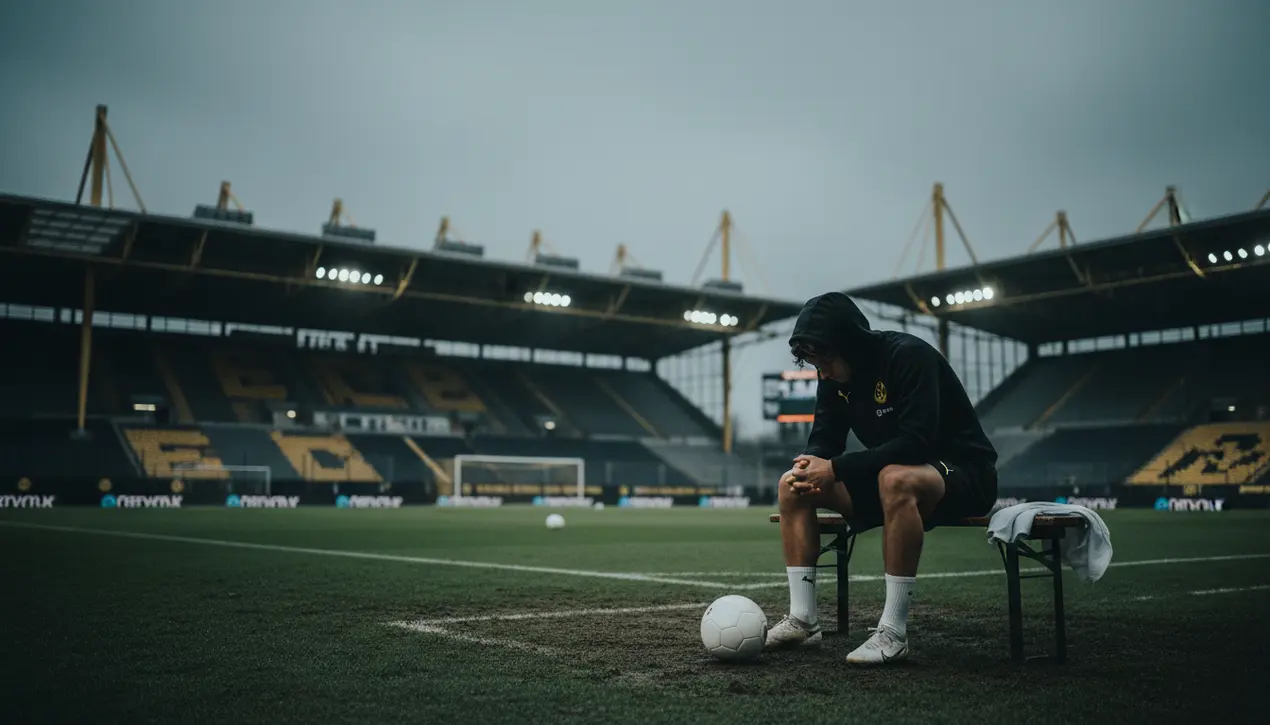
SportfootballBundesliga
🛑 Career stalled in Dortmund: have BVB put the brakes on his progress?
JA
Jack Turner
21 hours ago7 min read5 comments
The narrative of Maximilian Beier at Borussia Dortmund is a compelling case study in the delicate interplay between raw talent and tactical environment, a story familiar to any student of football analytics. His moment of glory, arriving in the 96th minute against Cologne to snatch a vital win, painted the picture of a classic super-sub, a role romanticized in football lore but often a purgatory for a player of his theoretical caliber.This single flash of brilliance, however, stands in stark contrast to a season defined by puzzling stagnation. Beier arrived at Signal Iduna Park with a formidable pedigree; his 16-goal haul for Hoffenheim was not a fluke but a data-backed promise of a potent, modern striker.His subsequent call-up to the German national team for the European Championship cemented his status as one of Germany's most promising offensive assets. The move to Dortmund was supposed to be the logical next step, a platform to launch him into the elite.Instead, his trajectory has flatlined, raising the uncomfortable question of whether the very club that should be accelerating his growth has inadvertently become a brake on his progress. The initial phase under Nuri Sahin was particularly damaging.Deploying a player of Beier's profile—a central striker with a keen sense of space and a penchant for driving into the half-spaces—as a conventional right winger was a fundamental misreading of his skillset, a square-peg-in-a-round-hole scenario that analytics would immediately flag as suboptimal. His public relief upon Niko Kovač's arrival, where he explicitly stated his preference was solely for the 'striker' position, was a telling indictment of his previous usage.While Kovač has rectified this positional error, the problem has merely shifted rather than dissolved. With only 562 Bundesliga minutes to his name this season, he exists in the shadow of the more established Serhou Guirassy and faces an increasingly crowded field with the arrivals of Silva and Bellingham.This limited game time is the single greatest inhibitor of his development; talent cannot be refined from the bench. His underlying metrics, however, tell a different story from his modest output.Covering nearly 12 kilometers per game and ranking as Dortmund's second-fastest player after Karim Adeyemi, Beier possesses the engine and raw physical attributes that echo the relentless pressing ethos of Jürgen Klopp's legendary Dortmund sides. His football intelligence and pressing effectiveness are not just visible to the eye but are borne out in advanced data, marking him as a player whose contribution extends beyond goals.Yet, the system under Kovač, which often prioritizes early crosses from wide areas over intricate central interplay, does not naturally play to his strengths as a player who thrives on quick, incisive combinations through the middle. This stylistic mismatch is a critical factor often overlooked in player assessments.Is Beier, in his eagerness to be a team player—as evidenced by his commendable but ultimately unhelpful shift to left wing against Augsburg—sacrificing the very specialization that makes him unique? His recent performance grades, a 5 from 'Sport1' and a 4. 5 from 'RUHR24', suggest a player caught between his instincts and the demands of the system, trying hard but lacking the decisive spark.The parallel with young talents at other clubs who flourish in systems built around their strengths is unavoidable. The danger for Beier is that he becomes a player of immense potential forever waiting for his moment, his prime development years slipping away in a cycle of substitute appearances and positional compromises.For Dortmund, a club with a storied history of nurturing and then selling elite talent, the failure to unlock Beier's full value represents a significant strategic misstep. The question is no longer just about Maximilian Beier's quality, which is undeniable, but about the environment required to translate that quality into consistent, game-defining performances. The evidence increasingly suggests that for Beier to become the star his data promises, he may need to find a stage where the system is the catalyst for his talent, not its constraint.
#featured
#Maximilian Beier
#Borussia Dortmund
#Bundesliga
#player performance
#football transfers
#Niko Kovač
#German national team
Stay Informed. Act Smarter.
Get weekly highlights, major headlines, and expert insights — then put your knowledge to work in our live prediction markets.
Related News
Comments
Loading comments...
© 2025 Outpoll Service LTD. All rights reserved.